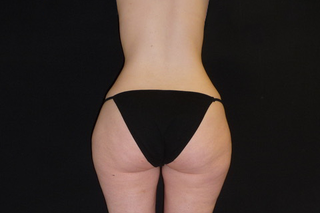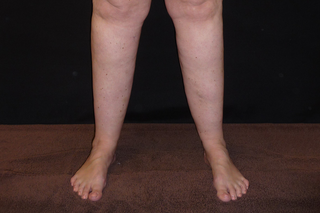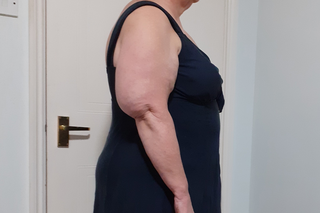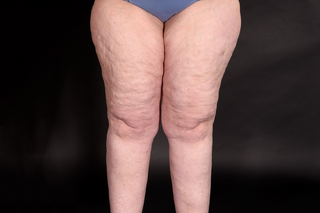What is lipedema?
Lipedema is a chronic and progressive disorder of the adipose (fat) tissue. It is sometimes called painful fat syndrome. Even though as high as 11% of the post-puberty female population are likely to suffer from lipedema, it is still rarely recognized and diagnosed.
Check if you have lipedema
Lipedema is more common in women. It usually affects both sides of the body equally.

In early-stage lipedema, you may have heavy legs, a narrow waist and a much smaller upper body.

You may have a large bottom, thighs and lower legs, but your feet will usually be unaffected.

Sometimes lipedema can affect the arms too, but the hands are not usually affected.

The affected skin feels soft and cool and may be dimpled with an "orange peel" texture.
You may also have pain, tenderness or heaviness in the affected limbs, and you may bruise easily.
Lipedema can also cause knock knees, flat feet and joint problems, which can make walking difficult.
It can be a difficult condition to live with and you may feel anxious or depressed.
Other causes of large or swollen legs
There are other things that can cause large or swollen legs.
If the skin on your legs is hard and tight but does not hurt when touched, it could be lymphedema.
It's caused by a problem with the lymphatic system (a network of vessels and glands that help fight infection and drain excess fluid from tissues).
Sometimes, a build-up of fluid can cause the legs, ankles or feet to become swollen. This is called edema. In lipedema, the feet are not usually affected.
Treatments for lipedema
If the GP thinks you have lipedema they may refer you to a specialist for treatment.
There's currently no cure, but there are things that can help and stop it getting worse.
Your treatment will depend on how severe your symptoms are and how they're affecting you.
The main treatments are:
- eating healthily, doing more exercise and trying to maintain a healthy weight
- wearing compression stockings or bandages to reduce pain and discomfort, and make it easier for you to walk
- looking after your skin – for example, by regularly using moisturizing cream (emollients) to stop your skin drying out
- counselling or cognitive behavioural therapy (CBT) if you're finding it difficult to cope with your symptoms and you feel depressed
- a procedure to get rid of the fat (liposuction) if your symptoms are particularly severe – you may need more than one operation and it will likely not be covered by your provincial health care plan.
Causes of lipedema
The exact cause of lipedema is not clear.
It's not caused by being overweight – you can be a healthy weight and still get it.
It may be caused by changes in your hormones:
- during puberty
- when you're pregnant
- when you're going through the menopause
- when you're taking the contraceptive pill
Sometimes lipedema runs in families.
Source: NHS, UK










Leave a comment
Please note, comments need to be approved before they are published.